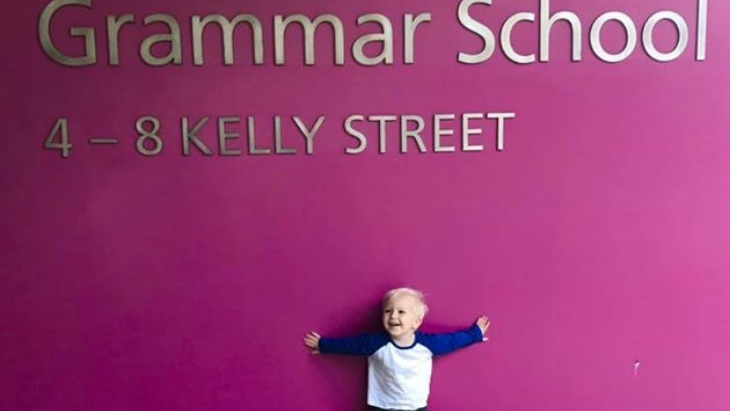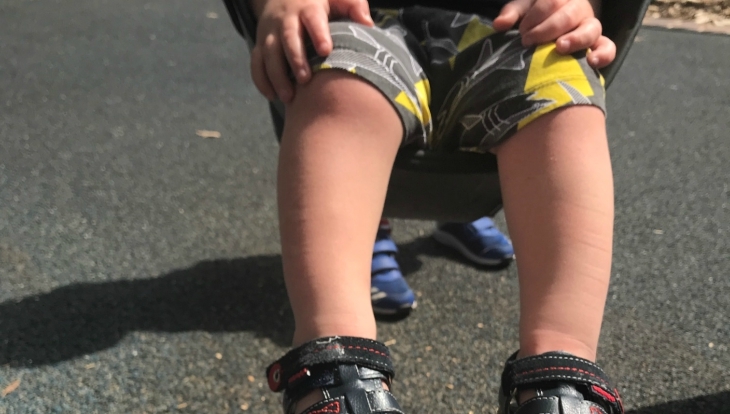
By: Hayley Dean, ellaslist
This year my eldest started Preschool at the school he is now likely to attend until he finishes year 12. I experienced the same emotions I imagine parents do on the first day of Kindy; heartbreak and pride. As I bit my lip to hold back tears, he grabbed my hands, stared me straight in the eye and reassuringly said “Don’t worry Mummy, I will miss and love you in my heart all day” then promptly turned around and left me there to ugly cry all alone.
A couple of weeks later, as I arrived to pick him up, I thought I was witnessing his first experience of being bullied. A bigger boy ripped the toys from his hands and seemed to be yelling in his face. The hairs on my neck stood up and my Mumma Bear claws immediately sharpened (think Wolverine). I flew into the playground to “save” my first born..…well at least that was what I thought I was doing when in fact, all I was really doing was grossly embarrassing him and scaring the bejesus out of the other kid.
Turns out they were playing really well together and pretending to “roar like dinosaurs”. What a fool I had been.

Fight Or Flight?
But how involved should we, the parents and caregivers, get when it comes to our child’s friendships in the school yard? Should we speak to “the bully”? Should we speak to the bully’s parents? And if, like me you don’t manage to control yourself at the right time, is there any way to redeem yourself?
“My advice is to not over interfere in the early stages, but use friendship issues as a means to problem solve, and teach social skills such as assertiveness, resolving conflict” recommends Sydney Clinical Psychologist Dr Simonne Cohen from Nature & Nurture Child Psychology clinic; “The best thing to do is to validate, listen and empathise as the first step.
Then to try and solicit questions to allow the child to problem solve e.g., "lets consider our options and how we can handle the situation. The best thing is to not overly invest in the problem - but empower the child to be assertive and manage the conflict on their own. This will empower the child to resolve conflict independent of the parent”.

Changes Are Afoot
Dr Cohen has highlighted “transition periods” as (generally) the hardest times that kids face when developing friendships. Transition periods refer to significant changes such as starting (i) Preschool or (ii) Kindergarten and especially (iii) High School when the added joy of hormones has kicked in.
1) Preschool stage - challenges they may face including navigating the social skills to initiate and develop friendships. A lot of anxiety around friendships might appear.
2) Kindergarten - navigating the playground, forming new friendships and learning how to resolve conflict. Play is also less structured than preschool so they have to navigate unstructured play which can be hard.
3) Transition to High School - navigating new friendships again - this time with social challenges such as social media, and new interests in girlfriends/ boyfriends etc. This is when a lot of kids are prone to social challenges.
“The only time I would say parents should get involved,” states Dr Cohen, “is if there is ongoing bullying that has not been resolved despite the child’s attempts at being assertive and managing it on their own”.
And don’t worry folks, it’s ok to make mistakes like mine because hey, we’re only human, what’s important is that you become mindful of your own emotions and try to not take on the feelings of your child. “If you notice that you have over-invested in the problem then take a step back and explain to the child why you did what you did and then use it as a learning experience for next time”. Phew!
Dr Simmone Cohen is a Clinical Psychologist from Nature & Nurture Child Psychology clinic in Earlwood Sydney.
Reviews



 Pick a Date
Pick a Date


